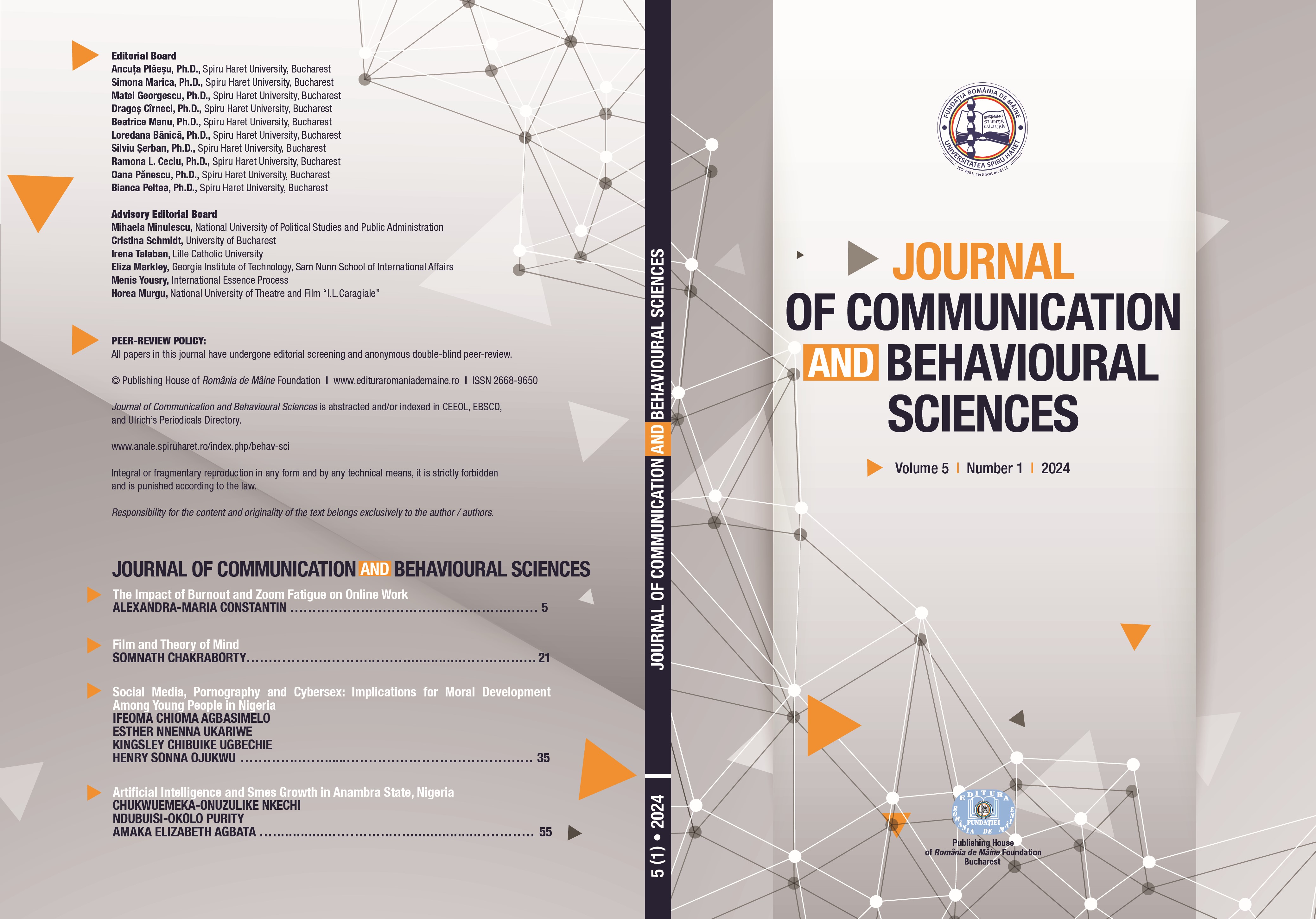FILM AND THEORY OF MIND
FILM AND THEORY OF MIND
Author(s): Somnath CHAKRABORTYSubject(s): Neuropsychology, Film / Cinema / Cinematography
Published by: Editura Fundaţiei România de Mâine
Keywords: phenomenology; Merleau-Ponty; film analysis
Summary/Abstract: Studies in mental images and visuals, diagrams, graphics, drawings etc. form an undeniable part in cognitive science research. Film as a visual medium couldn’t be kept aside, aloof from scientific enquiry for too long. It is from that irresistible urge to include the fascinating visual medium that film had to be incorporated into the academic sphere of cognitive science. Considered to be a ‘cheap’ form of art and fated to be stuck in its infancy (as it was thought during the 1890s), film finally entered the arena of serious academics far from its original fate. Starting as a rather philosophical endeavor, the analysis of films went later into psychological approaches and nowadays film psychology has become a wide area of research. This paper explores the relation between understanding of visual media (films) and the notion of embodied theory of mind. The broad area, under which this falls, would be films and cognition. The perspective that is involved in this work is the phenomenological paradigm as laid down by Merleau-Ponty.
Journal: Journal of Communication and Behavioural Sciences
- Issue Year: 5/2024
- Issue No: 1
- Page Range: 21-34
- Page Count: 14
- Language: English
- Content File-PDF

